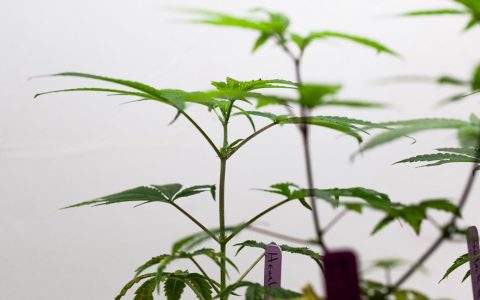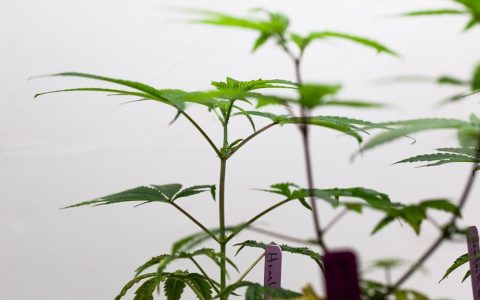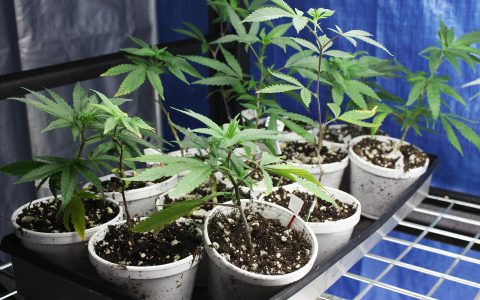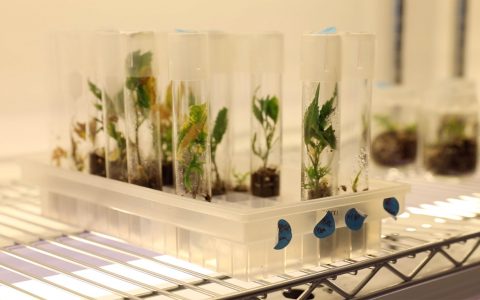Growing cannabis can seem like a daunting task if you’ve never done it before, especially figuring out how to get started. A cannabis plant is a lot more delicate in its infancy and it’ll need more care and attention than adult plants.
Growing from a clone can be a lot easier than growing from seed because you skip the process of germination every time you start a new crop, saving you time and labor. Modern technology has also made growing clones easier than ever.
To clone, simply take a cutting off a plant, put it in a rooting medium or cloning machine, and give it nutrients or a rooting solution. It’ll root out and be ready for potting in 10-14 days and you’ll have a solid start to your cannabis plant.
A clone is an exact genetic copy of its mother, so there’s no need to worry about it having less potency or different effects than those of the original.
Below are some different cloning methods and products that we recommend, in a range of prices so you can get the one that fits your needs.
Base Level Cloning Equipment
These options are great for someone getting into growing and not sure if they want to invest in a more expensive product. Anyone can get started and use these simple methods with ease.
Root Cubes and Trays (~$40)
The tried-and-true and most basic method of cloning, starting your clones in root cubes is something that every grower has done in their lifetime. To get started, you’ll need:
- Set of 1½ x1½ inch rooting cubes (~$15)
- Tray to catch water (~$2)
- Tray-cell insert to put your rooting clones in (~$2)
- Humidity dome (~$5)
- Rooting hormone (~$5)
- Heat pad (~$10)
There are multiple types of rooting cubes made from different material, each with its own benefit:
- Rockwool: Made by melting rock and spinning it into fine threads, this common material is sterile and very porous. Make sure it has good drainage because it sucks up water easily.
- Peat: These hold onto moisture and are organic and biodegradable, but they can have difficulty maintaining their structure.
- Foam: These cubes don’t get as waterlogged as rockwool and have no effect on pH levels.
Before cloning machines became more affordable this method of cloning was the go-to for growers, but now it’s less desirable because it can be a hassle to use all the pieces and machines are much easier and have a higher success rate.
With these supplies, you can successfully clone cannabis and also propagate from seed, making this a desirable option for anyone wanting to do explore both methods.
Clone Bucket 8 (~$50)
This is the most affordable aeroponic system in our buyer’s guide. Aeroponics is the practice of growing plants with their roots suspended in air, while they receive a continual misting from sprays and nozzles in the cloning machine (see graphic of this system below). This gives roots high levels of oxygen, helping clones grow rapidly.
With a very simple design, the Clone Bucket offers a misting system for 8 clones for just under $50. The 2-gallon bucket is small in size and will give you similar results to more expensive aeroponic cloners.
Its spray nozzle is attached to a 171 gallon per hour (gph) pump which is more than enough to keep your clones happy. The plus side is that it has few moving parts, but if the nozzle ever clogs, your clones will be in trouble.
This functional and affordable machine is great for anyone looking to experiment with cloning. You can also make your own version of this with a 5-gallon bucket or something similar if you want to cut costs even further.
Midrange Options
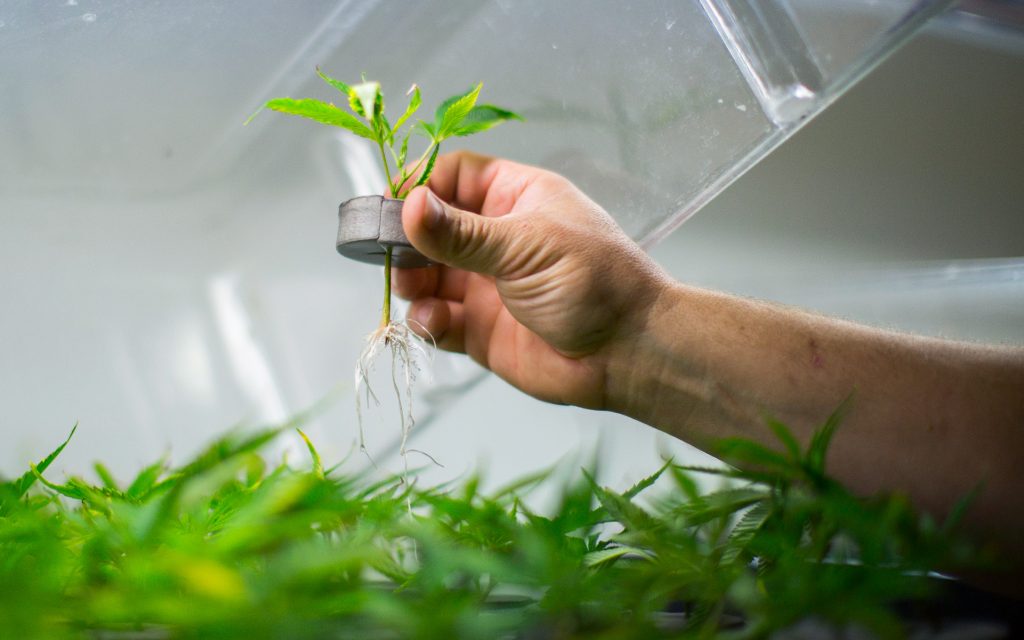 (Leafly)
(Leafly)
These cloners are great if you will be cloning routinely and want a product that doesn’t require much attention so you can focus on other aspects of your garden.
HydroFarm OxyClone 20 ($70)
Instead of misting clone stems with spray nozzles, HydroFarm’s OxyClone submerges stems completely under water. This allows the roots to receive both oxygen and H2O to ensure that clones stay healthy while developing roots. This different design is great because it has few moving parts and no spray nozzles, which are known to clog up.
This model is made for 20 clones, but OxyClone also offers versions with 40 and 80 clone sites for growers with bigger gardens.
Clone King 25 ($70)
A reputable midrange option, the Clone King is an aeroponic cloner with 13 spray nozzles and a powerful 317 gph submersible pump. With so many nozzles and a strong pump, you can be sure that every developing root gets a healthy dose of fresh H2O, promoting strong, healthy, and rapid growth. If one of the nozzles clogs, your clones will still make it because there are many backups. Other models have 36 and 64 clone sites.
High-End Cloning
The cloners here are the top-of-the-line with all the bells and whistles. Some might argue that cloning doesn’t have to be this complicated, but the products below will step up your growing game.
TurboKlone 24 ($145)
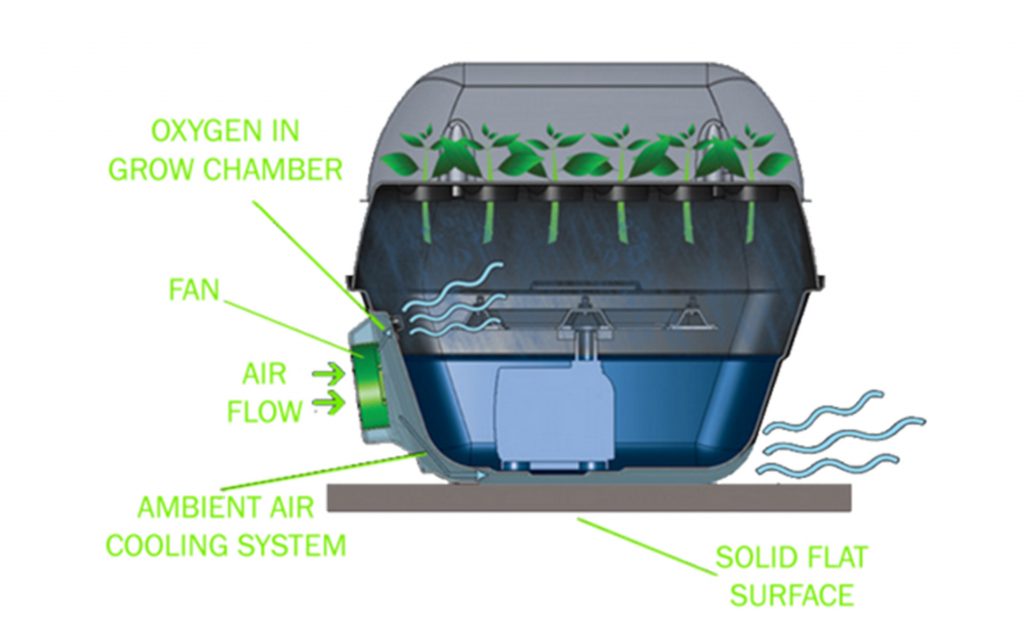 (Click to enlarge. Courtesy of TurboKlone)
(Click to enlarge. Courtesy of TurboKlone)
The TurboKlone is our top choice for high-end cloners. The design is similar to the Clone King but it also has a cooling fan to help maintain a consistent temperature in the rooting chamber. This helps keep the water cool, making it easier for clones to receive oxygen, which means faster rooting and healthier clones.
It’s important to note that in order for this cooling process to work, the ambient air temperature must be cooler than the temperature of the water. The TurboKlone is also available in models with 28, 96, and 144 clone sites, covering both small- and large-scale growers.
Tissue Culture Microclone Kit ($250)
The most expensive and most complicated form of cloning, tissue culturing is an emerging method for cloning cannabis. This process involves taking a tissue sample from a mother plant and sterilizing it, then giving it the right hormones, nutrients, and light.
The culture can be preserved indefinitely and to start growing it, the grower can just give it a different set of nutrients to encourage root development.
There are numerous benefits to this cloning method. Tissue cultures are completely sterile, meaning you don’t have to worry about pests or diseases being transferred into your grow room. These cultures can also be stored for long periods of time, given they have the right environment, and they save space because you don’t need to keep a mother plant around.
Tissue culturing is an advanced technique and should be explored by growers looking to preserve the genetics of a specific strain rather than just grow a few quick clones.


